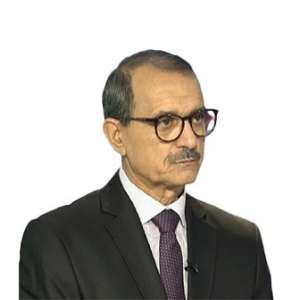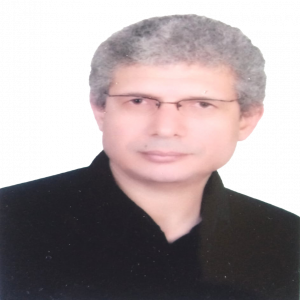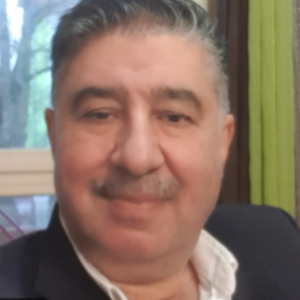د. فضل الربيعي يكتب:
لماذا جاء تأسيس المجلس الانتقالي الجنوبي؟
جاء تأسيس المجلس الانتقالي الجنوبي كامتداد لتراكم نشاط الحراك الجنوبي، بل ويعد ثمرة نضال القوى السياسية والاجتماعية والمقاومة الجنوبية معا، التي عبرت عنه كثير من الرؤى والادبيات والتوجهات السياسية والفكرية للمكونات والقوى والنخب والأفراد والمؤسسات الفكرية ومنظمات المجتمع المدني في الجنوب، خلال السنوا ت الماضية.
وعليه فان تأسيس المجلس الانتقالي الجنوبي جاء تلبية لرغبة وطنية جنوبية، ترى أهمية وجود قيادة سياسية جنوبية تمثل الجنوبيين والانتقال بهم إلى عملية يتصرف من خلالها كاطارا سياسيا مستقلا وصولاً إلى تحقيق هدف الجنوبيين بالحصول على استقلالهم الكامل عن نظام صنعاء، عبر ممارسة العمل السياسي الذي يمكنهم من السير في اتجاه مواجهة التحديات القادمة التي يمارسها تحالف نظام صنعاء "القبلي الطائفي والسياسي "هذا من ناحية ؛ ومن ناحية أخرى يحافظ على النصر الذي حققته المقاومة الجنوبية في حربها ضد المليشيات الحوثية، إذ كان لابد من رفد النصر العسكري بالنصر السياسي والذي عبر عنه تأسيس المجلس الانتقالي، خصوصا بعد ان اتضحت كثيرُ من الامور المتمثل في فشل حسم الحرب في الشمال، وتعمد الحكومة الشرعية في اهمال المناطق المحررة وتحكم الإنقلابيين في صنعاء بالسيطرة على كل المقدرات المالية والإدارية.
إن انتظام العملية السياسية للحراك الجنوبي كانت تستدعي وجود مؤسسة سياسية واضحة تتعامل مع الواقع ببعديه الاستراتيجي والتكتيكي معاً، والاستفادة من التجارب السابقة التي مرت بها العملية السياسية، وما طالها من عبث مارسته سلطات نظام صنعاء، منذ حرب 1994م، مرورا بأحداث 2011 م ومؤتمر الحوار وتصاعد موجات المظاهرات والاحتجاجات الشعبية السلمية من 2007_2015م، حتى ظهور المقاومة الجنوبية المسلحة التي تمكنت من طر المليشيات الحوثية وقوات الجيش المتحالفه معها من عدن وبعض المناطق الجنوبية.
Why was the establishment of the Transitional Council?
The establishment of the Southern Transitional Council came as an extension of the activity of the Southern Movement, but rather the fruit of the struggle of the political and social forces and the Southern resistance together, which was expressed by many visions, literature and political and intellectual orientations of the components, forces, elites, individuals, intellectual institutions and civil society organizations in the south, during the past years.
Accordingly, the establishment of the Southern Transitional Council came in response to a southern national desire, which sees the importance of having a southern political leadership representing the southerners and moving them to a process through which it acts as an independent political framework in order to achieve the southerners’ goal of obtaining their complete independence from the Sana’a regime, through the exercise of political action that enables them to Walking in the direction of facing the upcoming challenges practiced by the alliance of the Sana’a regime, “tribal, sectarian and political” on the one hand; On the other hand, it preserves the victory achieved by the southern resistance in its war against the Houthi militia, as it was necessary to supplement the military victory with the political victory, which was expressed by the establishment of the Transitional Council, especially after many things became clear, represented in the failure to resolve the war in the north, and the legitimate government deliberately The neglect of the liberated areas and the control of the putschists in Sanaa to control all financial and administrative capabilities.
The regularity of the political process of the Southern Movement required the existence of a clear political institution that deals with reality in its strategic and tactical dimensions together, and benefiting from the previous experiences that the political process has gone through, and the futility it has practiced by the authorities of the Sana’a regime, since the 1994 war, through the events of 2011 and the dialogue conference and the escalation of Waves of peaceful popular demonstrations and protests from 2007-2015, until the emergence of the armed southern resistance that managed to drive the Houthi militias and allied army forces from Aden and some southern areas.
a. Dr.. Fadel Al-Rubaie






